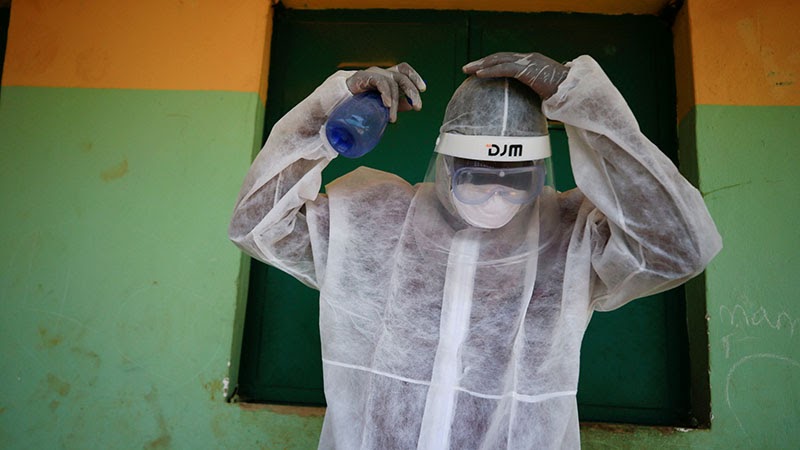A health worker sprays his headset during a community testing exercise, as authorities race to contain the spread of the coronavirus disease (COVID-19) in Abuja, Nigeria April 16, 2020. REUTERS/Afolabi Sotunde
The Global Initiative for Economic, Social and Cultural Rights says Nigeria lacks universal services to respond to health emergencies.
The organisation said this in a report on Wednesday released in partnership with the Justice & Empowerment Initiatives with the support of Corporate Accountability & Public Participation Africa.
The reports analysed the impacts of COVID-19 on the right to health in Nigeria, in the context of the privatised healthcare system in the country.
It said since the first COVID-19 case in Nigeria was confirmed, the country has been struggling to guarantee the right to health of citizens, amidst shortages of accessible health facilities, medical staff and drugs.
Advertisement
“Nigeria lacks universal, public healthcare services to respond to public health emergencies. The country is critically short of health facilities, staff and medical equipment necessary to deliver COVID-19 treatment, testing and vaccination to its population of more than 206 million in 2020,” the report reads.
“Several barriers impede access to healthcare services amidst the pandemic, as such access is largely shaped by socioeconomic inequalities.
“Regulation and monitoring of private health providers by authorities are insufficient. There have been numerous cases of private clinics and hospitals not complying with scientifically appropriate medical standards and practices during the pandemic.
Advertisement
“Several private health providers offer substandard healthcare services and fail to comply with appropriate medical protocols and standards, including by using expired drugs or employing unqualified staff, especially in urban informal settlements. Well before the pandemic, academic literature documented ineffective malaria therapies in the private health sector. During COVID-19, there have been cases of private health facilities using expired reagents for COVID-19 testing.”
It, however, noted that this was to be expected as there have been flaws in Nigeria’s healthcare system even before the pandemic.
The report said the commercialisation of Nigeria’s healthcare system is among the main drivers of the right to health challenges and therefore recommended an increase in governmental funding to health to at least 15 percent of the budget.
It also recommended federal and state governments to “reverse the current policies intended to encourage higher private sector engagement in healthcare; ensure that all healthcare providers are strictly monitored and regulated at the federal, state and local levels; and take concrete steps to ensure universal access to social health insurance or another pre-pooled financing scheme”.
Advertisement
Add a comment






